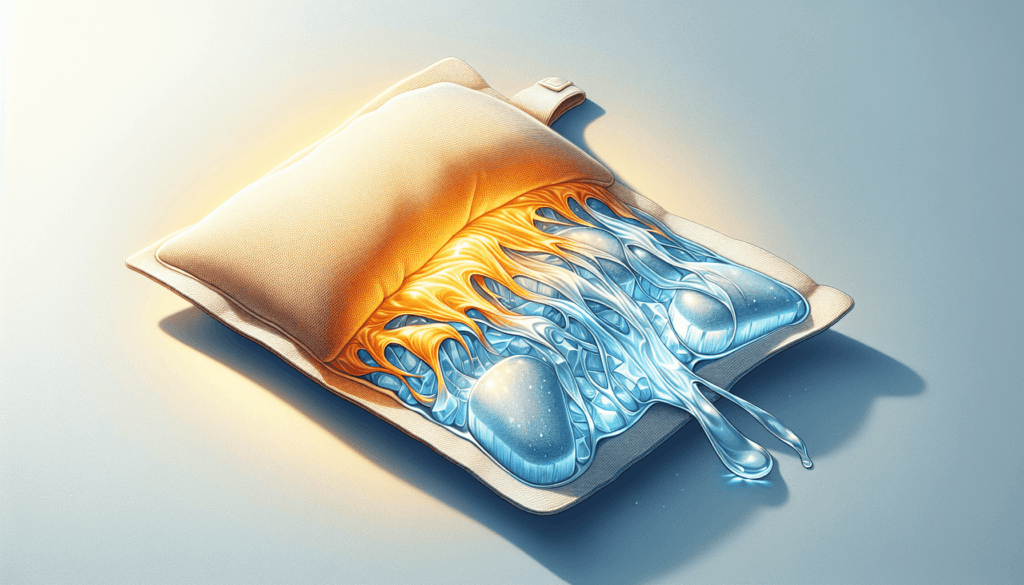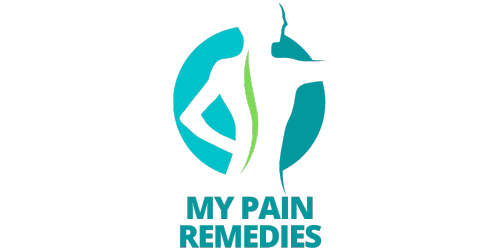Having surgery is never an easy experience, and dealing with nerve pain afterwards can make it even more challenging. Luckily, there are effective home remedies that can help alleviate this discomfort without the need for additional medication. From applying warm compresses to practicing gentle stretching exercises, these simple and natural remedies offer relief and promote a faster healing process. By incorporating these remedies into your post-surgery routine, you can find comfort and relief from nerve pain, allowing you to focus on your recovery journey.

Essential Oils
Lavender oil
Lavender oil is known for its calming and soothing properties, making it a popular choice for relieving nerve pain. Its gentle scent can help to relax the mind and body, promoting a sense of calmness and reducing stress levels. Lavender oil can be applied topically to the affected area or used in a diffuser to fill the room with its fragrance. It is important to dilute the oil with a carrier oil such as coconut or jojoba oil before applying it to the skin to avoid any potential irritation.
Peppermint oil
Peppermint oil has a cooling sensation that can provide temporary relief from nerve pain. It contains menthol, which acts as a natural analgesic and can help numb the affected area. Peppermint oil can be applied topically in diluted form or added to a warm bath for a relaxing and pain-relieving experience. However, it is essential to note that peppermint oil can be strong, so it is important to perform a patch test before using it to ensure there is no adverse reaction.
Chamomile oil
Chamomile oil is widely known for its calming and anti-inflammatory properties. It can help reduce nerve pain by soothing inflamed nerves and promoting relaxation. Chamomile oil can be applied topically to the affected area or added to a warm compress for a soothing effect. Additionally, drinking chamomile tea can also help relax the body and mind, providing overall relief from nerve pain.
Herbal Remedies
Turmeric
Turmeric is a spice commonly used in Indian and Asian cuisine, but it is also popular for its potent anti-inflammatory properties. Curcumin, the active compound in turmeric, has been shown to reduce pain and inflammation, making it beneficial for nerve pain relief. Incorporating turmeric into your diet or taking turmeric supplements can help alleviate nerve pain and promote overall well-being.
Ginger
Ginger is another natural remedy that possesses anti-inflammatory properties. It can help reduce inflammation in the body and relieve nerve pain. Ginger can be consumed in various forms, including fresh ginger tea or adding it to meals. Additionally, ginger essential oil can be diluted and applied topically for localized relief. It is important to consult with a healthcare professional before using ginger supplements or essential oil to ensure it does not interact with any medications you may be taking.
Devil’s claw
Devil’s claw is a plant native to southern Africa and has been used for centuries as a natural remedy for pain and inflammation. It contains compounds that have anti-inflammatory and analgesic effects, making it beneficial for relieving nerve pain. Devil’s claw supplements are available in capsule or tablet form and can be used as an alternative treatment for nerve pain after surgery. It is important to follow the recommended dosage instructions and consult with a healthcare professional before starting any new supplement.
Hot and Cold Therapy
Hot compress
Applying a hot compress to the affected area can help relax muscles, improve blood circulation, and provide temporary relief from nerve pain. You can use a warm towel, heating pad, or even a hot water bottle wrapped in a cloth. Ensure that the temperature is comfortable and not too hot to prevent burns. Apply the hot compress for 15-20 minutes a few times a day or as needed for pain relief.
Cold pack
A cold pack can help numb the area and reduce inflammation, providing temporary relief from nerve pain. You can use a cold pack or ice wrapped in a towel and apply it to the affected area for 10-15 minutes at a time. It is important to take breaks between applications to prevent skin damage. Cold therapy may be more effective during the initial stages of nerve pain or when inflammation is present.
Alternating hot and cold therapy
Alternating between hot and cold therapy can provide a combined effect for nerve pain relief. Start with a hot compress for 10-15 minutes, followed by a cold pack for 10-15 minutes. Repeat this process for a total of 30-45 minutes, ending with the cold pack. The hot therapy helps relax muscles and improve blood flow, while the cold therapy reduces inflammation and numbs the area. This alternating therapy can help alleviate nerve pain and promote healing.
Acupuncture and Acupressure
Acupuncture
Acupuncture is an ancient Chinese healing technique that involves inserting thin needles into specific points on the body. It is believed to help balance the flow of energy and stimulate the body’s natural healing response. Acupuncture has been shown to provide relief from various types of pain, including nerve pain. By targeting specific acupuncture points, the treatment can help reduce inflammation, improve blood flow, and alleviate nerve pain. It is important to seek a certified acupuncturist for safe and effective treatment.
Acupressure
Acupressure is a non-invasive alternative to acupuncture that utilizes finger pressure instead of needles. Applying pressure to specific points on the body stimulates the flow of energy, providing relief from pain and promoting overall well-being. To relieve nerve pain, gentle pressure can be applied to acupressure points related to the affected area. This technique can be performed by a trained practitioner or learned for self-treatment.

Exercise and Stretching
Low-impact exercises
Engaging in low-impact exercises can help improve circulation, strengthen muscles, and reduce nerve pain. Activities such as walking, swimming, or cycling are suitable options for individuals experiencing nerve pain after surgery. These exercises are gentle on the joints and provide cardiovascular benefits without placing excessive stress on the body. It is important to start slowly and consult with a healthcare professional or physical therapist to ensure safety and prevent any further injury.
Stretching
Stretching exercises can help alleviate muscle tension, increase flexibility, and relieve nerve pain. Gentle stretching of the affected area can help improve range of motion and reduce discomfort. Consult with a physical therapist or knowledgeable professional to learn specific stretches targeted towards nerve pain relief. It is important to perform stretches correctly to avoid any strain or injury.
Meditation and Mindfulness
Deep breathing
Deep breathing exercises can help relax the body and mind, reducing stress and promoting a sense of calmness. Sit or lie down in a comfortable position and take slow, deep breaths. Inhale deeply through your nose, allowing your abdomen to rise, and exhale slowly through your mouth. Focusing on your breath can help redirect your attention away from nerve pain, promoting relaxation and overall well-being.
Guided meditation
Guided meditation involves listening to a recorded voice or following a meditation app’s instructions to guide your thoughts and induce a state of relaxation. These guided sessions can help you shift your focus away from pain and achieve a state of mental calmness. Many online platforms and mobile applications offer guided meditation programs specifically designed for pain relief and stress reduction. Explore various options to find the one that suits you best.
Yoga
Yoga combines physical postures, breathing techniques, and meditation to promote overall well-being and relieve pain. Certain yoga poses can help alleviate nerve pain by improving flexibility, reducing muscle tension, and promoting relaxation. It is important to consult with a qualified yoga instructor who can guide you through appropriate poses that target nerve pain relief. Start with gentle and beginner-friendly classes, gradually progressing as your body allows.
Topical Creams and Gels
Capsaicin cream
Capsaicin is a compound found in chili peppers that can provide temporary relief from nerve pain. When applied topically, capsaicin cream can help desensitize nerve receptors, reducing pain signals. It is important to follow the instructions for proper application and avoid applying capsaicin cream to broken or irritated skin. Some individuals may experience a warming or burning sensation upon application, which is normal and should subside over time.
Lidocaine gel
Lidocaine is a local anesthetic that can be found in gel form and applied topically to numb the area and provide temporary relief from nerve pain. Lidocaine gel works by blocking pain signals in the localized area where it is applied. It is important to follow the recommended dosage and instructions provided by the manufacturer. Be cautious not to apply too much gel or use it on large areas of the body without medical guidance.
Nutritional Supplements
Alpha-lipoic acid
Alpha-lipoic acid is a natural compound that has antioxidant properties and may help reduce nerve pain. It has been studied for its potential benefits in treating diabetic neuropathy and other forms of nerve damage. Alpha-lipoic acid supplements can be taken orally to support nerve health and relieve pain. It is important to consult with a healthcare professional before starting any new supplement to determine the appropriate dosage and ensure it does not interact with any medications.
Vitamin B12
Vitamin B12 plays a crucial role in nerve function and overall neurological health. Individuals with vitamin B12 deficiency may experience nerve pain and other neurological symptoms. Supplementing with vitamin B12 can help alleviate nerve pain and promote nerve regeneration. It is important to consult with a healthcare professional to determine the appropriate dosage and method of supplementation, as excessive intake may have adverse effects.
Magnesium
Magnesium is an essential mineral that plays a crucial role in nerve function and muscle relaxation. It has been shown to help reduce nerve pain and improve overall nerve health. Incorporating magnesium-rich foods into your diet or taking magnesium supplements can assist in relieving nerve pain. It is important to consult with a healthcare professional to determine the appropriate dosage and ensure it is safe for you based on your individual health circumstances.
Transcutaneous Electrical Nerve Stimulation (TENS)
TENS unit
A TENS unit is a small device that delivers mild electrical impulses to the affected area via electrode pads placed on the skin. These electrical impulses help stimulate nerves, providing temporary relief from nerve pain. TENS units are widely used as a non-invasive and drug-free method of pain relief. It is important to follow the manufacturer’s instructions and consult with a healthcare professional before using a TENS unit to ensure proper application and avoid any potential risks.
Massage Therapy
Swedish massage
Swedish massage is a gentle form of massage therapy that promotes relaxation and overall well-being. It involves long, flowing strokes, kneading, and gentle tapping to help improve circulation, reduce muscle tension, and alleviate nerve pain. The soothing nature of Swedish massage can help reduce stress and promote a sense of calmness, providing temporary relief from nerve pain. It is important to seek a qualified massage therapist who is experienced in treating individuals with nerve pain.
Trigger point massage
Trigger point massage focuses on specific points of tension or knots in the muscles, known as trigger points. By applying direct pressure to these areas, a massage therapist can help reduce muscle tension and alleviate nerve pain. Trigger point massage may involve deeper pressure than Swedish massage and can be slightly uncomfortable at times. It is important to communicate your pain tolerance and preferences with your massage therapist to ensure a safe and effective treatment session.
In conclusion, there are various home remedies and natural approaches available for individuals experiencing nerve pain after surgery. Essential oils such as lavender oil, peppermint oil, and chamomile oil can provide soothing and calming effects. Herbal remedies like turmeric, ginger, and Devil’s claw possess anti-inflammatory properties that can help alleviate nerve pain. Hot and cold therapy, acupuncture and acupressure, exercise and stretching, meditation and mindfulness, topical creams and gels, nutritional supplements, transcutaneous electrical nerve stimulation (TENS), and massage therapy are all viable options to consider in managing and finding relief from nerve pain. It is important to consult with a healthcare professional before trying any new remedies or therapies to ensure they are suitable for your specific condition and overall health.


